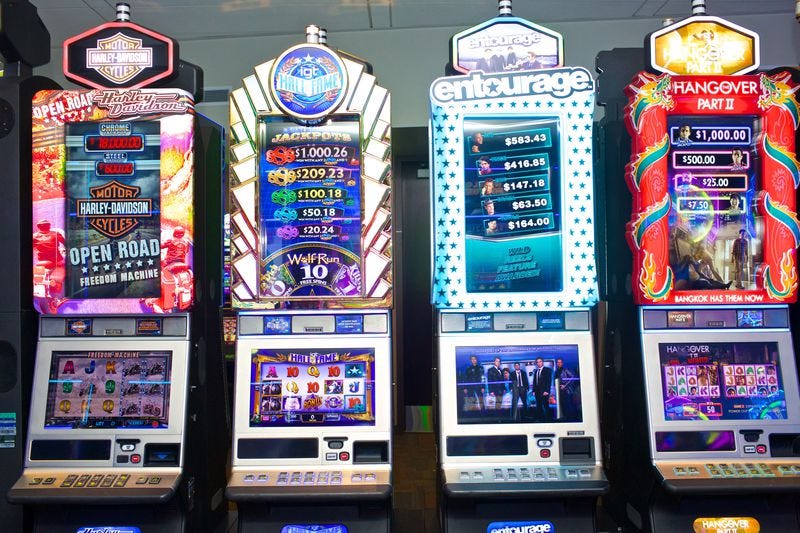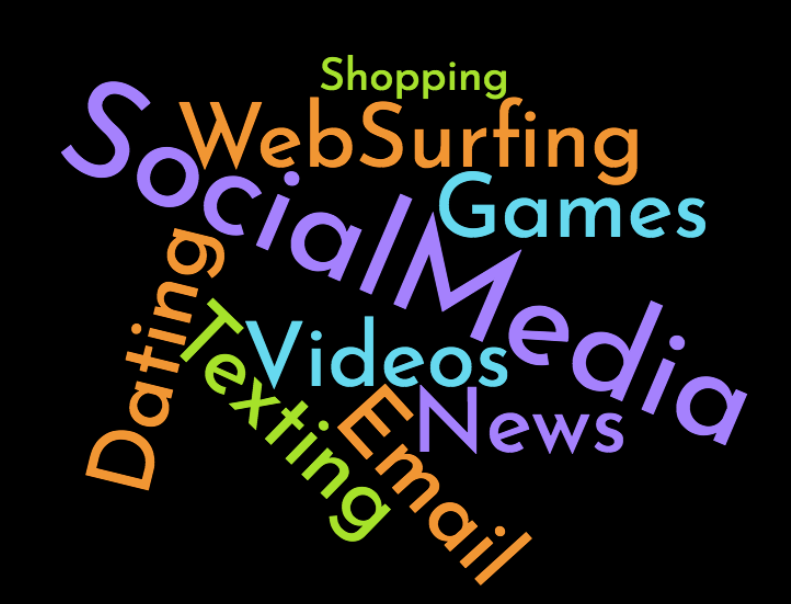Happy Friday, everyone!
Thank you for your phone breakup letters—they are so fun (and moving) to read. It’s amazing to feel the vulnerability you all are expressing, and to begin to see themes emerge. You love your phones for all they do, but you also resent them for what they’re stealing from you—which is to say, the relationships and interactions, the sights and sounds and physical sensations, the joys and the quiet moments, even the boredom, that make life meaningful.
I also asked you to try to notice the triggers that lead you to reach for your phones. If you have any observations you’d like to share, please do by leaving a comment and/or answering this poll:
There was a lot of self-compassion in your letters, something I talked about in my last post as being essential for self-change. Today we’re going to continue with this “it’s not our fault” theme, and then do a few concrete things that will help you begin to shift the balance of power in your favor.
How Our Brains are Being Hacked
“Brain hacking” is a Silicon Valley term that refers to manipulating people’s behaviors by messing with their biochemistry. In the case of our phones, this involves designing products that will trigger the release of dopamine, a chemical our brains use to record when something is worth doing again, and to motivate us to repeat the behavior.
Dopamine is behind all of our habits (and addictions), and is essential for our species’ survival, since it reminds and motivates us to do things like eat and reproduce.
But our dopamine systems are non-discriminating: if something triggers the release of dopamine, we’re going to feel motivated (indeed, compelled!) to repeat the behavior, regardless of whether or not it’s good for us, or if it’s something we actually want to do. So if you want to build a product that hooks people, it’s actually quite simple: you just build as many dopamine triggers as possible into the product’s design.
Slot Machines We Keep in Our Pockets
Slot machines are the quintessential examples of this manipulation at work—they’re packed with dopamine triggers, which is why they’re considered to be some of the most addictive machines ever to have been invented.

For example, here are some dopamine triggers:
Bright colors. Novelty. Uncertainty. Anticipation. Unpredictable rewards.
In other words, the exact same features that are built into our phones. In fact, our phones (or, more specifically, our most problematic apps) have been deliberately designed to mimic slot machines—which is why tech experts themselves often refer to our phones as slot machines that we keep in our pockets.
And that, my friends, is why it’s possible to be intelligent, self-aware people with all the best intentions and STILL end up wasting hours a day on our phones.
So don’t get mad at yourself. Get mad at the app makers.
Putting the “Dope” in Dopamine
If you ask people to identify their most problematic, time-sucking apps, it becomes quickly obvious that they’re the apps that are the most similar to slot machines. Check out this word cloud I made, based on a survey I once did asking people to identify their most “problematic” apps:
Bright colors? Check. Novelty? Check. Uncertainty? Check. Unpredictable rewards (in the form of social affirmation via a like or a comment)? Check. Anticipation? Check.
Note that these apps have nearly nothing to do with the things that these same people said brought them joy:
So please: stop beating yourself up. Instead . . .
Here’s what to do this weekend:
Watch this video of this 8-minute talk I did for the Fortune Brainstorm Health conference. It explains this manipulation in more detail and reveals some of the effects our smartphone are having on our memories, attention spans, relationships, and mental and physical health—and what’s ultimately at stake.
Share this post with someone who needs it and have a conversation about it. (Things to ask: what things about your phone use—or, if you’re brave each other’s!—bothers you the most? How did your own current habits come to be? What would you like to change? What’s one experiment you could do to start making that change? What are your most problematic apps? What do you want to spend more time doing?)
Part of the reason that we’ve gotten to this point is that we’ve never had conversations—as individuals, as couples, as families, as co-workers, or as society—about what we want our relationships with our phones to be like. If we want to change, we need to have these conversations.
Get your phone out of your bedroom for this weekend (it can come back Sunday night if it must).
Start using your standalone alarm clock (and if you don’t have one yet, get one!)
And here are the two biggies:
Spend one hour a day without your phone
Go for a walk! Read a physical book! Meet up with a friend! Practice an instrument! Knit! Stare at the sky! I know you all have ideas because you told me some of them in your breakup letters!
Delete your most problematic, slot-machine-y app for the weekend
Do it right now, while I’ve got you feeling motivated. Just put your finger on the app and hold it there till it starts jiggling, and then hit the x. It will ask you if you’re SURE you want to delete it (it might even say something threatening about losing your data, which is a sign of a totally emotionally healthy relationship) and you will continue anyway because YOU AND I BOTH KNOW that it will NOT delete ANY of your data, and it is just being manipulative like a bad boyfriend/girlfriend and WE ARE DONE WITH THAT.
(At least for the weekend. You can reinstall it Monday if you truly want to.)
Note: You are going to find yourself trying to check the app on autopilot this weekend, because your brain has been hacked. Don’t freak out. (Even when your brain starts freaking out.) You are a person who does not have Instagram/TikTok/X/the news/whatever your problem app is on your phone for this weekend, and THAT IS A GOOD THING. So when you find your finger hovering over a blank spot on your screen, have a gentle laugh—oh, silly brain!—and use it as a prompt to put down your phone and do something else.
Fun Squad members:
Keep bringing your questions, comments, observations and suggestions to the Phone Breakup Forum. I read them all and will respond personally!
To scrolling less and living more,
PS: did you mark your calendar for March 1-2? It’s the Global Day of Unplugging and I’m going to invite you to join me for it. The idea is to unplug from technology from sundown on Friday to sundown on Saturday. If that sounds terrifying and completely unrealistic to you right now, don’t worry: we’re going to prepare together and it may well end up being one of your favorite things that we do.
PPS: As always, don’t forget to share your delights in our delight chat (I consider that to be a positive use of technology).







The phone is crack for those of us with ADHD. Just sayin'
I have long contended that phones are basically adult pacifiers. The way people clutch onto them, like a cherished lovey; a blanket or stuffed companion.